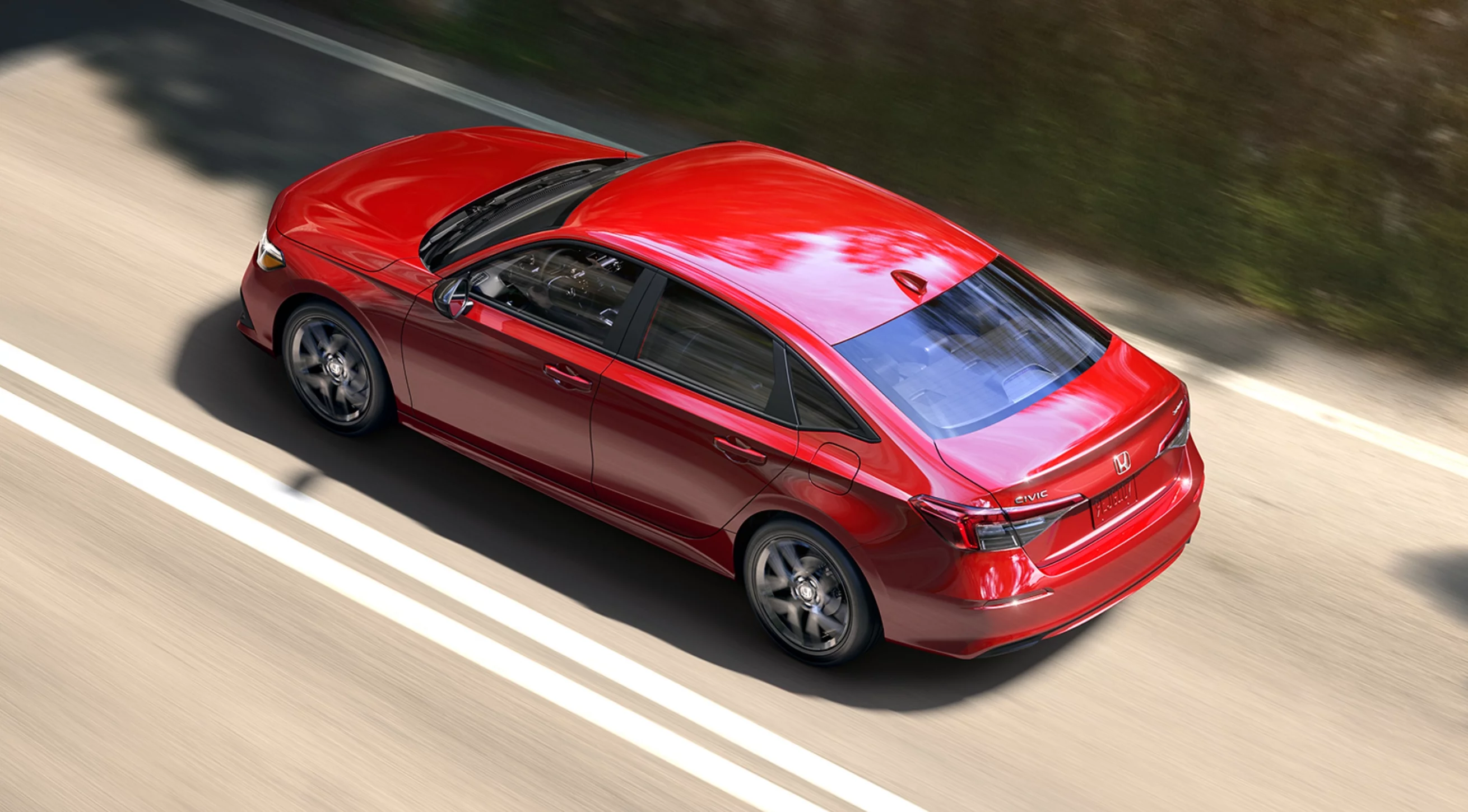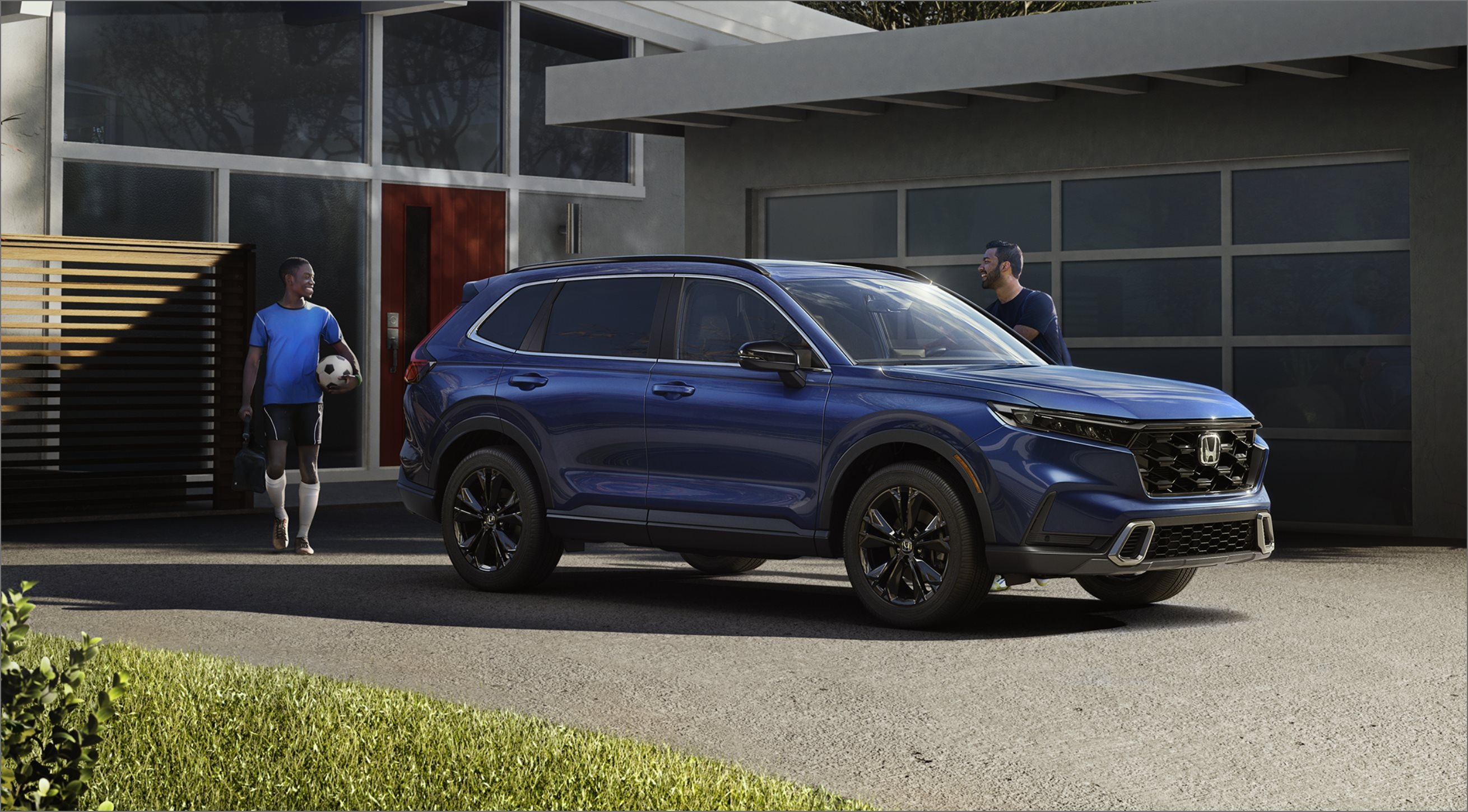What Should You Do If Your Check Engine Light Comes On In Your Honda?
The Honda check engine light, an essential dashboard warning light, is your vehicle's way of saying "I need help." It lights up when one of the car sensors fails to send back the right signal. The hue of the light can give an indication as to the severity of your car's issue.

If it's yellow, consider it as a gentle nudge that there might be something needing attention. But if it turns red - well, let's just say that things are heating up and you should stop immediately for some professional assistance at places like Brickell Honda.
A handy tip from us? Don't panic. This small but mighty light is doing its job – alerting you before minor issues become major headaches.
Common Causes for Your Honda Check Engine Light to Turn On
The mystery of the blinking check engine light can cause any car owner's heart to race. But don't panic, we've got your back. Let's look at some common reasons why that pesky light might come on in your Honda.
Dealing with Loose Gas Caps
Sometimes, it's as simple as a loose gas cap. Yes, you read right. If you notice the check fuel cap warning and the engine light comes on simultaneously, give that gas cap a good twist till it clicks. Problem solved.
The Role of Spark Plugs
Moving onto something more technical: spark plugs. When they wear out over time due to regular use or poor maintenance, your vehicle will let you know by illuminating its check engine light. Want to avoid this? Get those spark plugs checked regularly.
Apart from these two culprits causing mischief with your Honda's dashboard lights; there could be issues related to oxygen sensors or catalytic converters leading up to an activated check engine signal.
Last but not least - failing mass air flow sensors and vacuum leaks can also trigger this annoyingly bright orange alert.
All said and done – if the battery is weak (not many consider this.), expect that check engine beacon to flash its disapproval too.

What to Do When Your Honda Check Engine Light Comes On
If your Honda's check engine light turns on, don't panic. It's crucial to reduce the load on your engine immediately.
Turn off any components that might put strain on the motor, such as the air conditioner or entertainment system. But remember, it doesn't mean you need a tow truck right away.
Visit Your Local Service Center
The next step is getting professional help from our Brickell Honda expert service team. They're trained in diagnosing and fixing problems related to a lit-up check engine light.
We recommend bringing your car into our service center as soon as possible. There we will read the trouble code associated with the warning light which gives us clues about what might be causing this issue.
Trust Our Team for All Vehicle Issues
Apart from being annoying, an illuminated check engine light could indicate potential performance decreases or more serious vehicle issues if left unchecked.
No matter how big or small, our service team is ready and equipped to get you back on track quickly and efficiently - whether it's just tightening up a loose gas cap or addressing more complex matters involving fuel pressure changes within your combustion chamber.
You're never alone when dealing with such situations because Brickell Honda has got you covered.
Steps to Diagnose Your Honda Check Engine Light
When your Honda's check engine light flickers on, it's like the car is asking for help. Don't be alarmed when the check engine light of your Honda comes on - there are measures you can take to comprehend what it's trying to tell you.
Understanding Check Engine Light Codes
The first step involves interpreting Check Engine Light Codes. Each code corresponds with a specific issue in your vehicle. It might seem confusing at first but think of them as different languages spoken by your car.
Your trusted mechanic or service center uses a diagnostic tool that reads these codes directly from the vehicle's computer system. This gadget works much like a translator, converting the 'car language' into something we humans can comprehend and act upon.
The cost of this quick check typically ranges between $85 and $120 depending on the model of your Honda.
When we spot problems in areas like the ignition coil or mass airflow sensor, they can cause odd signals. These strange signals are what make your engine light flip on.
Common Honda Check Engine Light Problems and Solutions
This article will look at some of the typical issues that make a Honda's check engine light appear and how they can be remedied.

Addressing Performance Issues
Discover how certain problems that cause your check engine light to come on can also affect your Honda's performance.
An engine misfire is one problem that often triggers the check engine light while also affecting performance. A misfiring engine can lead to decreased fuel economy and even potential damage to the vehicle's emissions system over time.
This issue typically occurs when there's an imbalance in the air-fuel mixture within the combustion chamber. But don't fret. You're just a quick visit to our service center away from resolving this.
The severity of any given issue is usually indicated by how your check engine light behaves - whether it flashes or remains constantly on, and its color. Constant illumination in yellow means you need help soon, but if it turns red? Well, make sure you pay us a visit ASAP.
FAQs in Relation to Honda Check Engine Light
Can I drive my Honda with check engine light on?
You can, but it's risky. The light signals an issue needing attention. If red or flashing, stop driving and get help.
What causes the check engine light to come on in a Honda?
The light often turns on due to issues like loose gas caps, faulty oxygen sensors, worn spark plugs or failing catalytic converters.
What is the most common cause of check engine light?
A faulty oxygen sensor usually tops the list for triggering the check engine light across many car models including Hondas.
How bad is a solid check engine light?
A solid Check Engine Light indicates a non-emergency situation. But don't ignore it - your vehicle needs inspection soon to avoid more serious problems.
Conclusion
Understanding your Honda check engine light is essential. It's like the car's way of saying, "Hey, I need a little help here." A yellow glow signals a potential issue while red means stop and get professional assistance immediately.
We've discussed common triggers for this pesky light. Loose gas caps, worn-out spark plugs or faulty oxygen sensors can all set it off. Knowing these causes lets you perform some quick checks yourself before heading to the service center.
You've also learned how mechanics diagnose these issues using vehicle codes. And remember: Performance changes often accompany that illuminated engine light - another hint at what might be amiss under the hood.
In short: Don't ignore that Honda check engine light; understand its language and act accordingly for smooth rides ahead!


